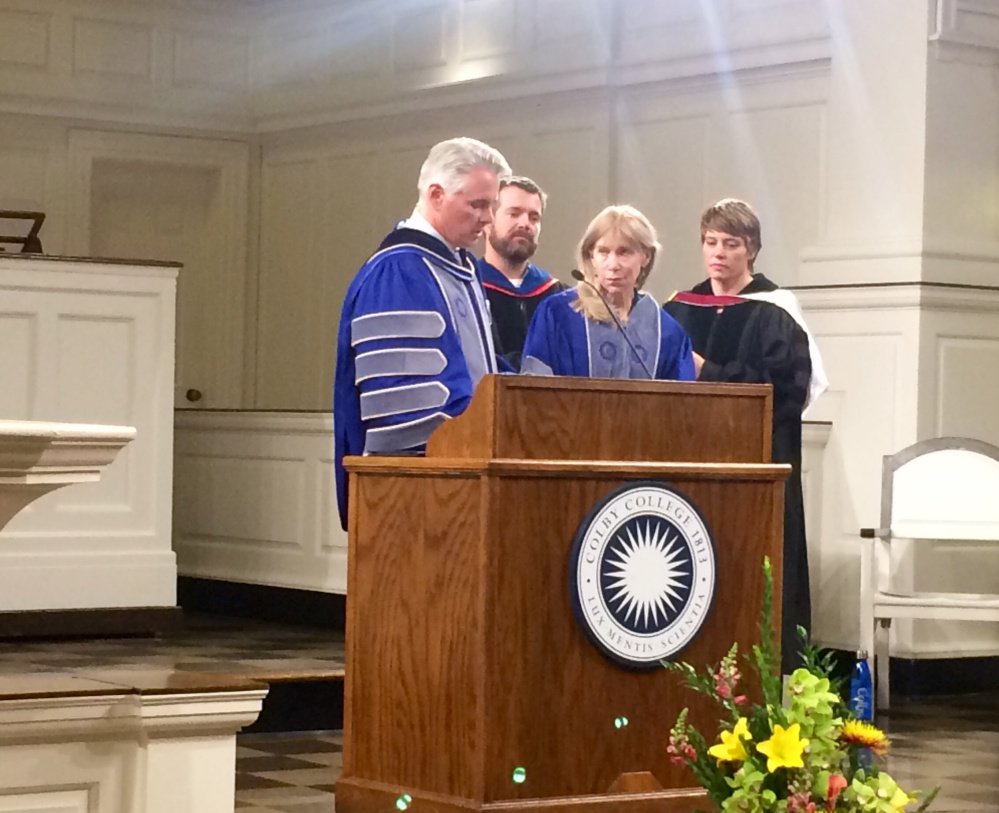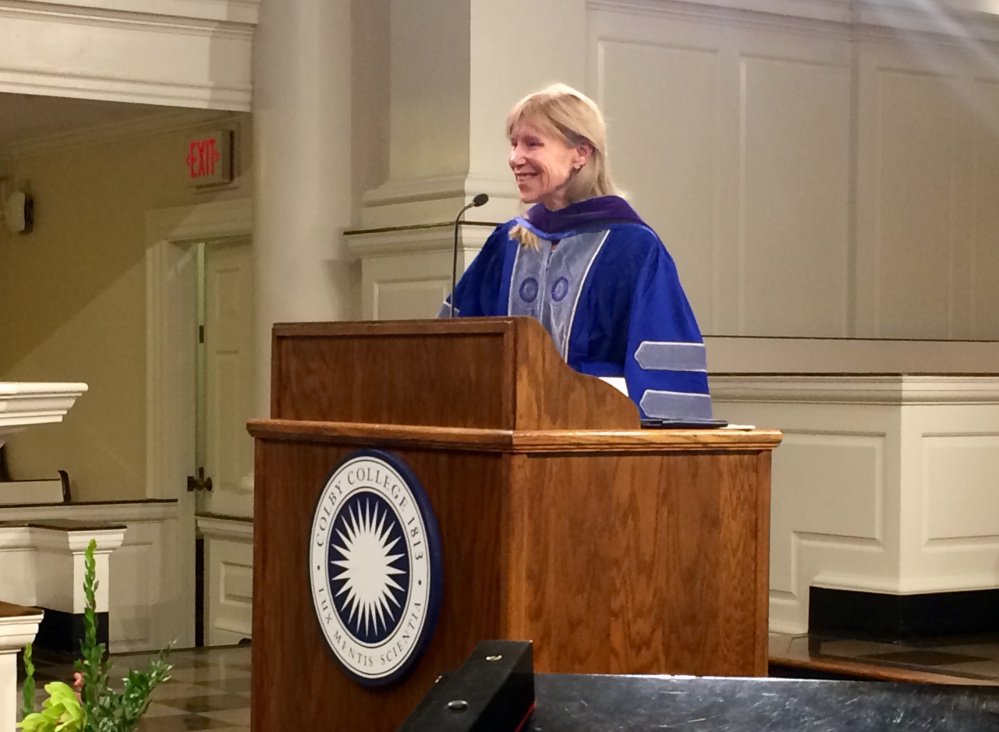WATERVILLE — Being a war reporter doesn’t always mean jumping out of helicopters with troops or following them as they sneak through the jungle at night, according to Alissa Rubin, though those are close to the things she has done in her career.
Rubin, who was injured in a 2014 helicopter crash in Iraq while reporting on a takeover by the Islamic State, told an audience at Colby College Monday night that while the image of a war reporter embedded with troops and following them through the action is still important, there’s another aspect of war reporting that she has striven to attain in her work around the world.
“I wanted to understand how war worked, how it distorted society, how it eroded order and led people on all sides to do unspeakable things,” said Rubin, the current Paris bureau chief for the New York Times and a former foreign correspondent for the Los Angeles Times. “I wanted to see it from the point of view of those forced to live in it, those who did not have the choice to go home as I did. And I wanted to see how the scars endure long after the gunfire stops.”
Rubin is the recipient of the 2016 Elijah Parish Lovejoy Award for courageous journalism, an annual award that Colby College bestows upon a journalist in honor of Lovejoy, an Albion native and Colby graduate killed in 1837 in retaliation for his newspaper work promoting the abolitionist movement.
In remarks Monday night at Lorimer Chapel, Rubin spoke to an audience of about 200 people and reflected on Lovejoy’s work, praising his willingness to speak the truth, even if it didn’t align with popular thinking, something she said is at the heart of what journalists do.
Rubin was chosen as the 2016 recipient of the Lovejoy award based on her journalistic integrity and courage, according to Dan Shea, director of the Goldfarb Center for Public Affairs and Civic Engagement at Colby and an ex-officio member of the Lovejoy Selection Committee. “She was chosen because of her work in so many war zones and her willingness to put herself in so many dangerous situations made it an easy selection for the committee,” Shea said. “In order for her to get these stories, she had to be right there in very difficult places.”
Monday night Rubin talked about her definition of being a war reporter, something she said doesn’t mean just covering combat, but the destruction of civilian lives and the loss of a sense of safety in society — which she saw the first time she reported from a war zone, covering the Kosovo War in the late 1990s and the impact on refugees.
A few years later after the Sept. 11, 2001, terrorist attacks, Rubin was sent to Pakistan as a reporter for the Los Angeles Times. A Taliban official told her she was prohibited from going on a press trip because she was a woman, but she eventually gained permission after arguing that only a woman could truly report on the atrocities faced by women and children since male reporters would not be allowed to interview women.
For her work documenting the treatment of women in Afghanistan in 2015, Rubin was awarded the 2016 Pulitzer Prize in international reporting.
Shea said he thinks Rubin plays down the dangerous aspect of her reporting, which is another reason why she was chosen for the Colby award. “What she’s anxious to do is tell the stories of the people she meets,” he said. “It’s not about her. She’s a very courageous, humble reporter.”
Monday night Rubin also touched on the changing landscape of journalism and the high cost associated with war reporting, saying that at times it has cost the New York Times as much as $1 million per year to maintain a bureau in Baghdad, where she started as a correspondent in 2007 before becoming the bureau chief for the paper. That cost does not include the salaries for reporters and security advisers, but rather things like cars, places to live, generators and fixers.
In addition reporters need to spend a lot of time in the area they are covering to establish a baseline for their reporting, Rubin said.
“I want to make a heartfelt plea to keep on funding international war coverage,” she said in closing remarks. “It’s expensive, it’s dangerous and it’s scary, but it also is at the heart of the journalistic mission.”
Rachel Ohm — 612-2368
Twitter: @rachel_ohm
Send questions/comments to the editors.





Success. Please wait for the page to reload. If the page does not reload within 5 seconds, please refresh the page.
Enter your email and password to access comments.
Hi, to comment on stories you must . This profile is in addition to your subscription and website login.
Already have a commenting profile? .
Invalid username/password.
Please check your email to confirm and complete your registration.
Only subscribers are eligible to post comments. Please subscribe or login first for digital access. Here’s why.
Use the form below to reset your password. When you've submitted your account email, we will send an email with a reset code.